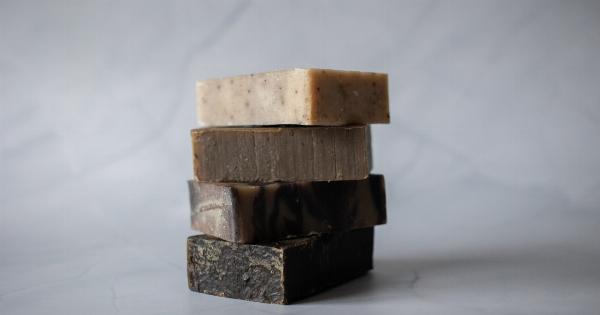Springtime brings about beautiful flowers, warmer weather, and longer days. However, it also comes with its fair share of allergens and irritants that can wreak havoc on our eyes.
One common eye condition that many individuals face during this season is conjunctivitis, also known as “pink eye.” This guide aims to provide you with valuable tips and preventive measures to keep your eyes healthy and free from conjunctivitis this spring.
What is Conjunctivitis?
Conjunctivitis is the inflammation or infection of the conjunctiva, the clear and thin tissue that covers the white part of the eye and lines the inner surface of the eyelids.
It can be caused by various factors including allergies, viruses, bacteria, or irritants.
Types of Conjunctivitis
1. Allergic Conjunctivitis:.
Allergic conjunctivitis is usually triggered by allergens such as pollen, dust mites, pet dander, or certain medications. This type of conjunctivitis is characterized by itching, redness, and excessive tearing.
2. Viral Conjunctivitis:.
Viral conjunctivitis is highly contagious and is caused by a viral infection. It can be spread through direct contact with an infected person’s eye secretions or by touching surfaces that have been contaminated.
Symptoms may include redness, watery discharge, and a gritty feeling in the eyes.
3. Bacterial Conjunctivitis:.
Bacterial conjunctivitis is caused by bacteria such as Staphylococcus aureus, Streptococcus pneumoniae, or Haemophilus influenzae. It can spread through direct contact with infected eye secretions or contaminated objects.
Symptoms include redness, sticky discharge, and crusty eyelids.
Preventing Conjunctivitis
1. Practice Good Hygiene:.
Regularly wash your hands with soap and water, especially when you have been in public places or around individuals who may have conjunctivitis. Avoid touching your eyes with unwashed hands to minimize the risk of infection.
2. Avoid Direct Contact:.
If you know someone has conjunctivitis, try to avoid close contact with them, especially touching their face or sharing personal items such as towels, pillows, or cosmetics.
3. Maintain Cleanliness:.
Clean and disinfect your contact lenses properly, following the recommended guidelines. Avoid wearing contact lenses if you have conjunctivitis, as it may prolong the infection or lead to further complications.
4. Protect Your Eyes:.
Wear sunglasses or protective eyewear when outdoors to shield your eyes from allergens, dust, and other irritants. This can help reduce the chances of developing conjunctivitis.
5. Keep Your Environment Dust-Free:.
Dust and pollen can aggravate conjunctivitis symptoms. Regularly clean and dust your living areas, especially your bedroom, to minimize exposure to these irritants.
6. Avoid Eye Rubbing:.
When your eyes are itchy or irritated, try your best to resist the urge to rub them. Rubbing can worsen the inflammation and may introduce new bacteria or irritants into your eyes.
7. Practice Allergen Avoidance:.
If you know you are prone to allergic conjunctivitis, try to limit your exposure to allergens. Stay indoors during peak pollen times, use air purifiers or filters in your home, and keep doors and windows closed to prevent allergens from entering.
8. Use Artificial Tears:.
If you have dry eyes or are prone to eye irritation, consider using over-the-counter artificial tear drops to keep your eyes lubricated. This can help reduce the risk of developing conjunctivitis.
Treatment Options
1. Allergic Conjunctivitis:.
For allergic conjunctivitis, over-the-counter antihistamine eye drops or oral antihistamines can provide temporary relief. Cold compresses can also help reduce eye redness and itching. If symptoms persist or worsen, consult an eye care professional.
2. Viral Conjunctivitis:.
Viral conjunctivitis usually resolves on its own within a few days to two weeks. Applying warm compresses and using artificial tears can provide relief. However, prescription antiviral medications may be necessary for severe cases.
3. Bacterial Conjunctivitis:.
Bacterial conjunctivitis is typically treated with prescription antibiotic eye drops or ointments. It is essential to complete the full course of treatment as prescribed by your doctor to prevent the infection from recurring.
When to Seek Medical Attention
While most cases of conjunctivitis can be managed with home care and over-the-counter remedies, there are instances where medical attention is necessary. Consult an eye care professional if:.
– Symptoms persist for more than a week.
– You experience severe pain or changes in vision.
– The conjunctivitis is accompanied by other symptoms such as fever, body aches, or respiratory issues.
– You have a weakened immune system or preexisting eye conditions.
Tips for Eye Health during Spring
1. Eat a Healthy Diet:.
Incorporate foods rich in vitamins A, C, and E, omega-3 fatty acids, and antioxidants into your diet. These nutrients are beneficial for eye health and can help protect against conjunctivitis and other eye conditions.
2. Stay Hydrated:.
Proper hydration is essential for overall health, including eye health. Drink plenty of water throughout the day to prevent dehydration and dry eyes.
3. Take Regular Breaks from Screen Time:.
Extended periods of screen time can cause eye strain and dryness, leading to increased vulnerability to conjunctivitis. Follow the 20-20-20 rule – every 20 minutes, look at something 20 feet away for 20 seconds.
4. Quit Smoking:.
Smoking increases the risk of eye diseases such as conjunctivitis and macular degeneration. Quitting smoking not only benefits your overall health but also promotes healthy eyes.
5. Get Regular Eye Exams:.
Regular eye exams are crucial for detecting any underlying eye conditions and maintaining good eye health. Your eye care professional can provide personalized advice and guidance for preventing conjunctivitis and other eye-related issues.
Conclusion
By following the preventive measures outlined in this guide, you can significantly reduce the risk of developing conjunctivitis, especially during the spring season.
Maintaining good hygiene, protecting your eyes, and seeking timely medical attention when needed will ensure healthy and irritation-free eyes, allowing you to enjoy the beauty of springtime to the fullest.


























